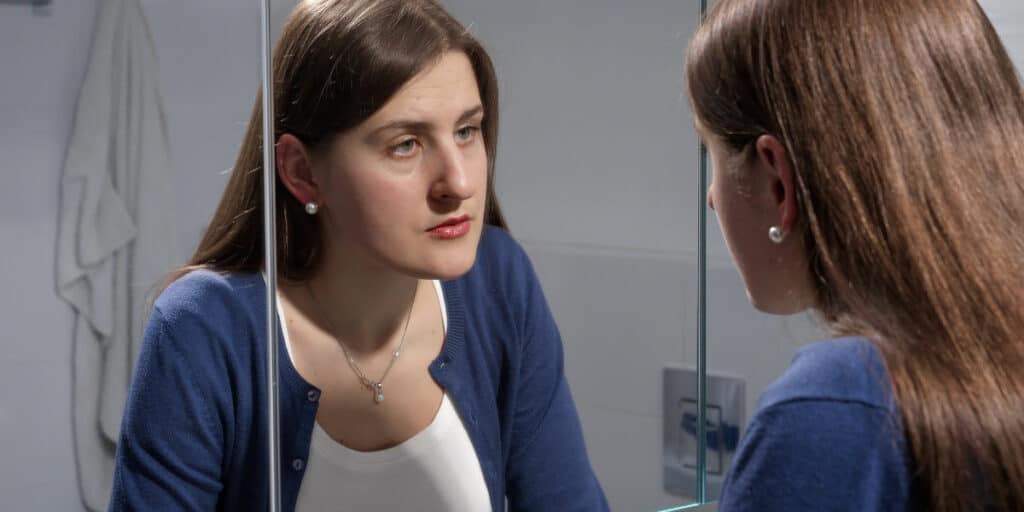How Psychological Assessments Improve Plastic Surgery Outcomes
By extensively assessing patients' psychological and emotional states, cosmetic surgeons can get beneficial understandings into their motivations, expectations, and potential emotional barriers. As we discover the nuances of this technique, the ramifications for both client complete satisfaction and long-term psychological health become noticeable, elevating vital questions regarding its duty in shaping the future of cosmetic surgery.
Understanding Emotional Assessments
Mental evaluations in the context of plastic surgery serve as vital devices to review a patient's emotional and mental readiness for surgical intervention. These evaluations are made to determine underlying mental conditions, such as body dysmorphic problem, clinical depression, or anxiety, which may influence a person's expectations and contentment with surgical end results.
The process typically entails structured interviews, standardized sets of questions, and professional assessments carried out by skilled psychological wellness specialists. By systematically checking out a person's inspirations for seeking cosmetic surgical procedure, these assessments aid to discern whether the desire for surgical procedure comes from reasonable self-improvement goals or from much deeper psychological concerns.
Moreover, mental assessments can promote educated decision-making by making certain that clients completely understand the potential risks and benefits connected with cosmetic procedures. This understanding is essential for lining up individual assumptions with sensible end results, eventually adding to a more sufficient surgical experience.
Additionally, these analyses can recognize patients that may gain from preoperative emotional assistance or counseling, thus improving their total health. Therefore, comprehending mental analyses is important for enhancing both the mental and medical end results of cosmetic surgery.

Advantages for Individuals
The execution of mental assessments in plastic surgery offers many benefits for clients, substantially boosting their total experience. First of all, these assessments provide an organized opportunity for individuals to discover their inspirations for seeking surgery. Understanding their underlying needs can foster even more enlightened decision-making, reducing the likelihood of remorse post-surgery.

Additionally, emotional assessments can help with better communication between individuals and their surgeons. By articulating worries and goals more clearly, people can develop realistic objectives, causing a much more adequate medical experience. These evaluations can boost patient-surgeon rapport, fostering trust fund and collaboration throughout the medical trip.
Impact on Surgical Results
How do psychological evaluations affect surgical end results in aesthetic treatments? Emotional assessments serve as vital tools in identifying clients' psychological wellness standing, assumptions, and inspirations before surgical treatment. cosmetic surgery mental health screening. By examining factors such as body image perception and psychological health, these assessments can predict how people will certainly react to cosmetic treatments
Research study indicates that patients with practical expectations are more probable to report complete satisfaction post-surgery. On the other hand, those with underlying psychological problems, such as body dysmorphic condition, might experience frustration no matter the procedural outcome. By determining these concerns early, practitioners can manage individual expectations successfully and decrease the probability of difficulties or regret after surgery.
In addition, psychological evaluations can boost the surgeon-patient partnership, cultivating Get the facts open communication and trust. This rapport is important for making sure that individuals feel comfortable discussing their concerns and goals, inevitably leading to extra positive surgical outcomes.
Tailoring Surgical Approaches

As an example, a client showing indications of anxiousness may gain from a more steady technique, probably beginning with less intrusive procedures before advancing to much more substantial surgeries. Conversely, people with a solid feeling of self and realistic assumptions may be appropriate candidates for more substantial interventions.
Furthermore, mental examinations can assist determine clients that may require extra support or therapy, particularly if their inspirations come from underlying psychological problems. Customizing surgical techniques not only enhances the technical implementation of the procedure yet additionally fosters a joint environment in between the doctor and client, bring about more satisfactory outcomes. Eventually, this customized method promotes a deeper understanding of the individual's special situations, resulting in a much more harmonious equilibrium in between visual objectives and psychological wellness, thus maximizing the total cosmetic surgical treatment experience.
Promoting Long-Term Satisfaction
To promote lasting fulfillment in cosmetic surgical treatment, it is important to establish sensible assumptions and foster open communication between the surgeon and client throughout the procedure. Psychological assessments act as a valuable tool hereof, making it possible for surgeons to assess an individual's motivations, desires, and possible mental end results. By understanding a client's psychological and emotional state, surgeons can give customized referrals that straighten with the patient's true desires.
Furthermore, participating in complete discussions about the prospective threats, advantages, and restrictions of the procedure aids minimize impractical assumptions. cosmetic surgery mental health screening. Clients who are knowledgeable are more most likely description to value the outcomes, adding to greater complete satisfaction prices. Continual follow-up after the surgical treatment is also vital in reinforcing the surgeon-patient connection and why not try these out addressing any type of issues that may develop throughout recuperation
In addition, emotional analyses can identify patients that may be at risk for post-operative discontentment, enabling preemptive treatments. Inevitably, the combination of mental assessments right into the cosmetic surgical procedure procedure not only improves surgical end results but additionally advertises long-term fulfillment, guaranteeing that patients really feel material with their choices and results as time progresses.
Verdict
By evaluating people' emotional and psychological readiness, these assessments assist in the identification of underlying mental conditions and motivations, leading to more tailored medical strategies. The integration of mental examinations into the medical procedure represents a vital innovation in individual treatment and outcomes.
The application of psychological evaluations in cosmetic surgical procedure supplies various advantages for individuals, substantially boosting their overall experience.Furthermore, mental evaluations can assist determine people who may call for extra assistance or therapy, especially if their inspirations stem from underlying psychological concerns. Emotional analyses serve as a beneficial tool in this respect, enabling cosmetic surgeons to evaluate a person's motivations, desires, and potential psychological results. By understanding a client's emotional and mental state, doctors can give tailored recommendations that straighten with the individual's true aspirations.
By examining people' psychological and psychological preparedness, these evaluations assist in the recognition of underlying emotional problems and motivations, leading to extra customized surgical strategies.